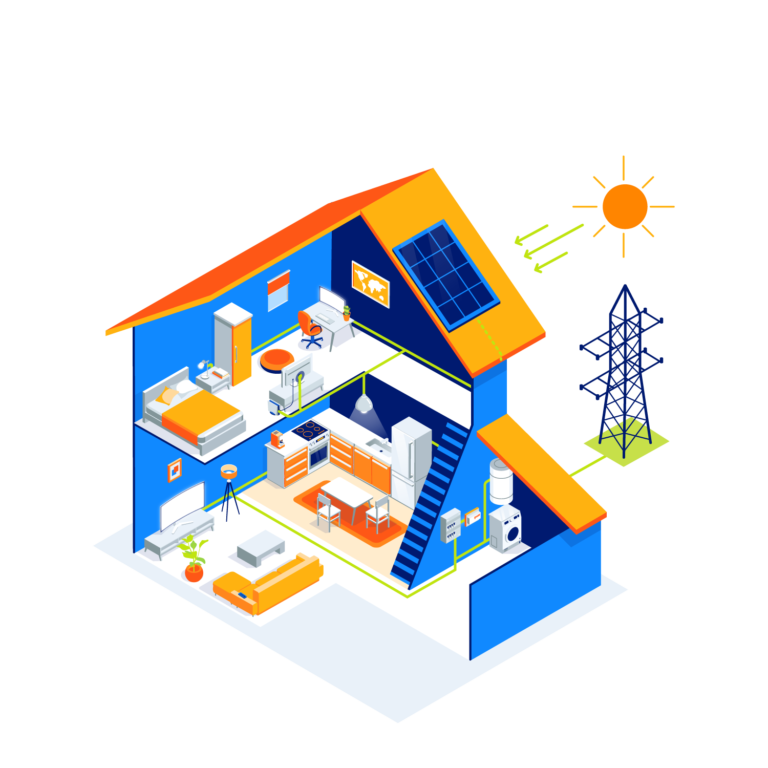With your solar panels, produce and consume your local energy
All about
self-consumption
To have enough electricity to supply your energy consumption in your home, we have found the solution: solar panels! As you live in a sunny area, this seems to be the best solution.

Our installation types
Installing solar panels
with DAEL
On your roof
A roof with solar panels is the ideal solution to produce and consume your own solar energy
On your terrace
An alternative to the installation on the roof is to produce your electricity on your terrace.
ground installation
Ideal for houses with a large plot of land or for those with a roof not suitable for photovoltaic installations: We install your panels on the ground


